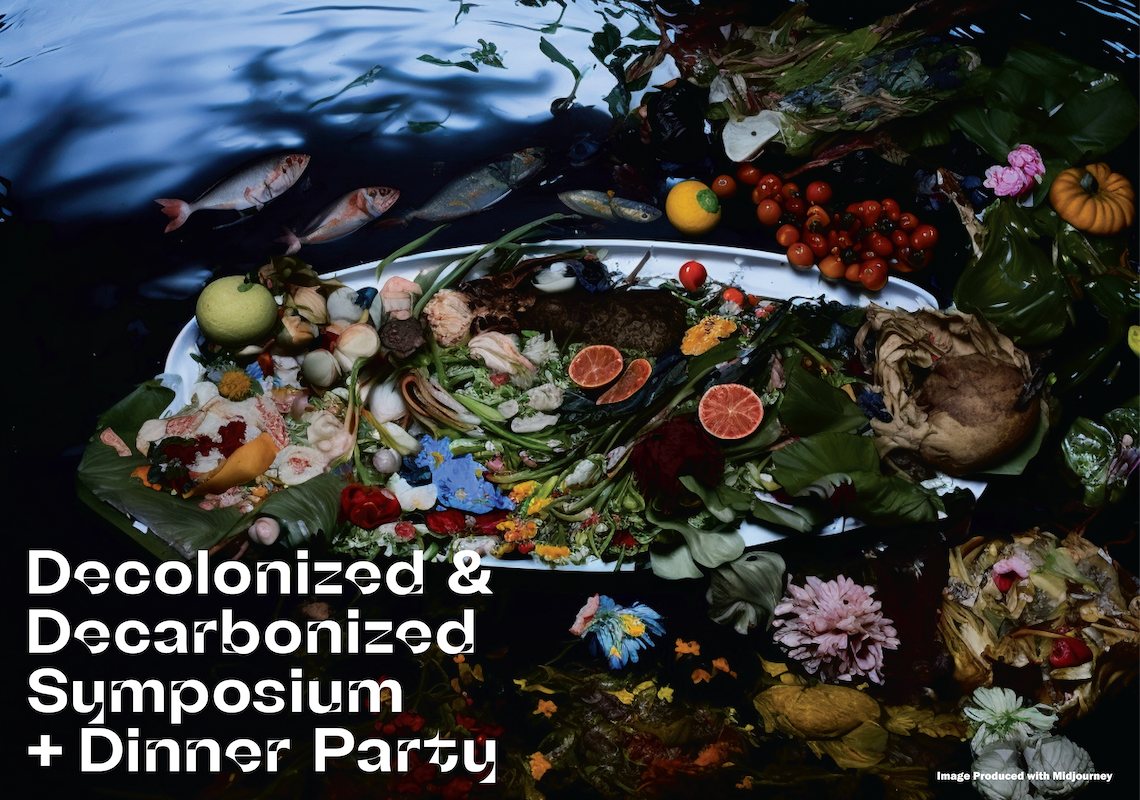A Decolonized & Decarbonized Dinner Party Symposium

12-2pm Eastern Standard Time and Peru Time / 6 – 8pm Central European Time / 7-9 South Africa Standard Time
Click HERE to register.
“For most of history, nature has been invaded, subjugated, exploited, scarred and deeply altered. Forests were devoured to create the ships that colonised the world. Wars were fought over water, soil and land. Rivers, mountains and even trees were used as colonial barriers. The scars of Apartheid are also ‘green’; – parks, rivers, mountains were used as divisions, and still divide and define our cities today. We have colonised the landscape, yet could not colonise without it. The path towards ‘Decolonisation and Decarbonisation’ is to refocus on the Landscape, erode ecological colonial boundaries, and to regenerate and rewild colonial scars.” – Heidi Boulanger
This year’s Decolonized + Decarbonized Dinner Party will include a symposium with guest speakers discussing our complex relationships to water in the context of design, food security and decolonization. Speakers ask critical question from five contexts (Peru, Egypt, Switzerland, US and South Africa). The symposium will open up dialogue and exchanges around provocations:
How can extreme (landscape) conditions for growing food, result in diverse and inventive recipes?
What is the relationship between food, making, and waterbodies?
Which recipes still perpetuate colonial extractivist remnants in our (landscapes)?
What if recipes could open up the space to reimagine our relationship as (landscape) bodies?
How do we make the diverse bodies of water in our kitchens visible?
How do we redraw our water systems in the context of colonization?
How do we visualize Indigenous understandings and relationships to water?
How do we develop sustainable building practices within a decolonial framework?
What are the relationships between sustainability, water and food security in design?
What is the future of water and food systems in plural visions of design?
Describe your relationship to water in your current work.
How can we continue indigenous and community based planting methods through design?
Describe YOUR relationship to water in your current work.
Describe the use of water in YOUR making or design strategies [some examples, not limited to: Hydrating, Dehydrating, Planting, Flooding, Sheltering, Impermeating, Absorbing, Washing]
At three interdisciplinary events: the feedback session, Dinner Party and Exhibition, you will share a recipe, material exploration, food dish, rituals and/or dinner table object as a contribution.
Resources to make and interrogate.
2022 Decolonized Decarbonized Dinner Party Publication
3/6 – Application Open
3/15 – A Decolonized Decarbonized Talk
University of Cape Town, South Africa
MFA ID Director, Michele Gorman, presents on behalf of MFA Directors, Yvette Chaparro and Preeti Gopinath
4/4 – Decolonized Decarbonized Dinner Party Symposium, 12 PM – 2 PM
4/13 – Open Feedback Session
Feedback given from 2022 Decolonized Decarbonized Dinner Party participants
4/20 – A Decolonized Decarbonized Dinner Party, 6-8pm
Participants prepare and share: recipe, dinner table design, food dish
4/22 – Earth Day Exhibition on Governors Island, 12 PM
Dinner Party contributions exhibited in front of Circular Economy Manufacturing and composted at Earth Matter